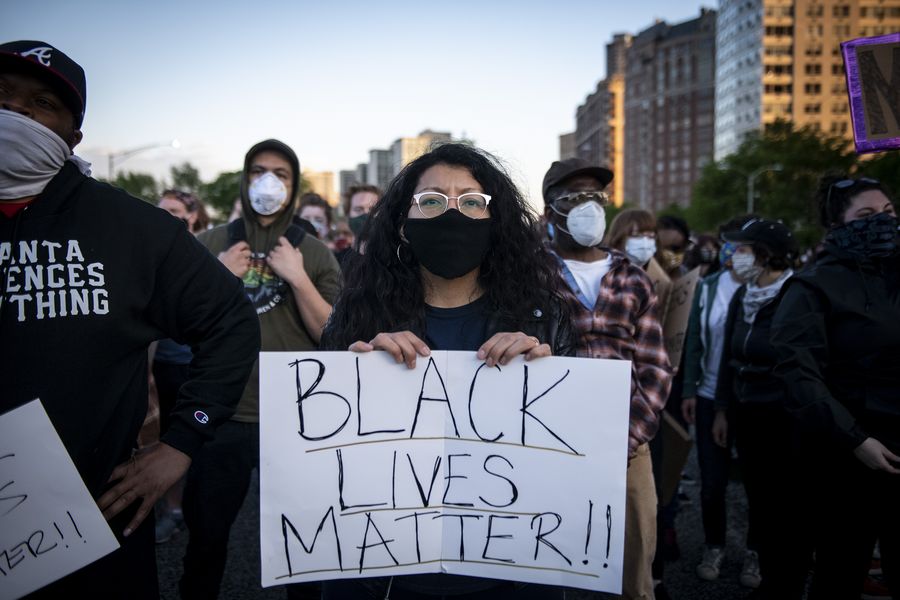Mass protests in US may speed up COVID-19 transmission, experts warn


WASHINGTON - As tens of thousands of demonstrators continue to take to the streets across the United States to protest the killing of George Floyd, an African American who died in police custody last week, health experts warned that mass gatherings may speed up COVID-19 transmission.
"Mass gatherings occurred in many locations across the country, resulting in close contacts and lack of social distancing. Though many demonstrators wear masks, the chances of COVID-19 infections increase tremendously," Zhang Zuofeng, professor of epidemiology and associate dean for research with the school of public health at University of California, Los Angeles, told Xinhua on Tuesday.
Many of the weekend's protests culminated in police officers shooting tear gas and using pepper spray and protesters setting fire to cars and buildings. Smoke, tear gas and pepper spray cause coughing, and coughing aerosolizes the virus, increasing the risk that it will spread, said Michael Osterholm, director of the Center for Infectious Disease Research and Policy at the University of Minnesota.
According to the U.S. Centers for Disease Control and Prevention, at least a third of COVID-19 patients are asymptomatic.
The infection risk is even higher when demonstrators have been arrested, Zhang told Xinhua.
"Jails are crowded indoor spaces. The aggregation of protesters in jails will increase the risk for onward transmission of the virus," Zhang said.
More than 5,600 people have been arrested over days of nationwide protests, according to The Associated Press.
On Monday, mayors and governors across the country urged demonstrators to stay home, and if they do go out, to wear a face mask and maintain social distancing.
Although government officials have warned demonstrators about the health risks posed by protesting during a pandemic, only a few have offered actionable guidance about the role COVID-19 testing can play in preventing the virus from spreading, said a report by ABC News.
Since most people who are infected with the coronavirus develop symptoms within 14 days of being infected and can spread the disease days before they feel sick, the window to get tested and avoid infecting others is small.
"The impact of the ongoing protests on COVID-19 case counts may be revealed in about two weeks. Some testing sites have been closed due to demonstrations, which also affects timely diagnosis of COVID-19 cases," Zhang said.
Protests over the death of Floyd entered the eighth day across the United States on Tuesday, with incidents of arson, vandalism and looting occurring in various places. Cities and states, including California, the District of Columbia, New York City and Cleveland, have extended curfews.
































